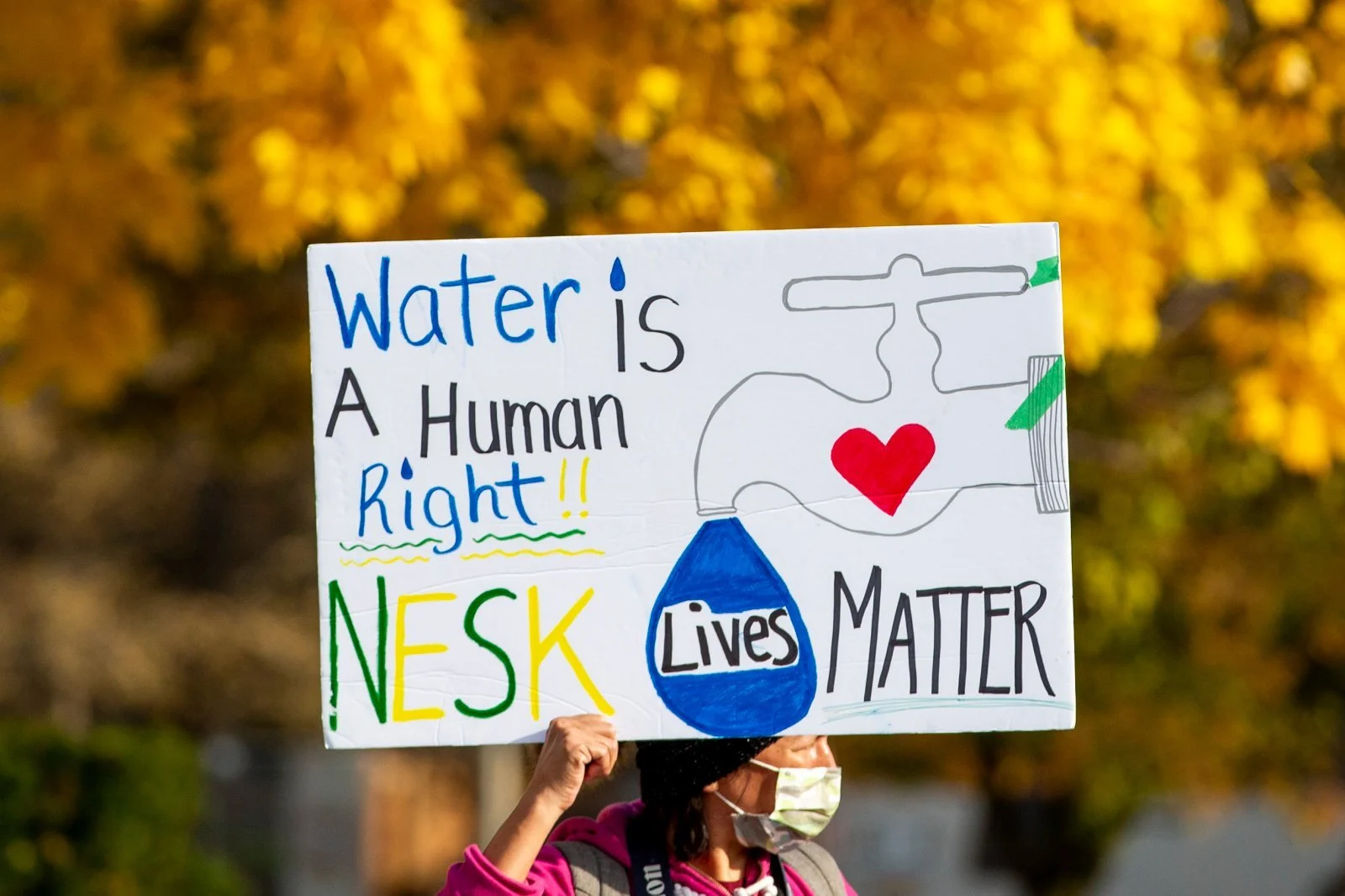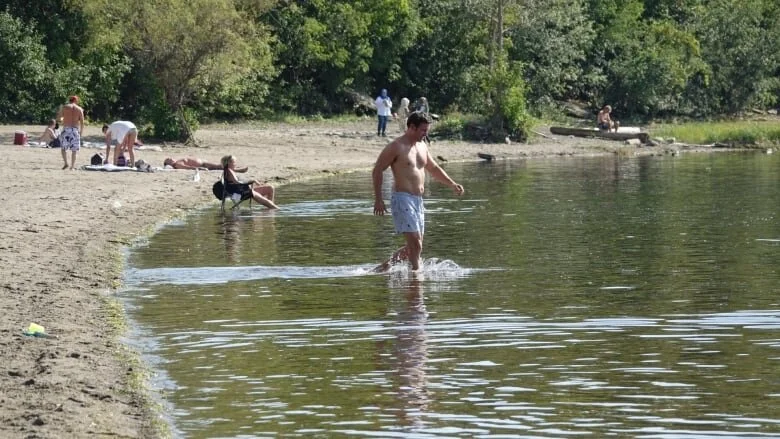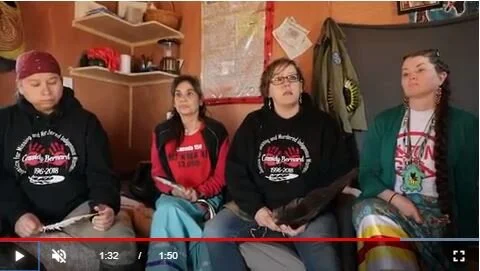Hydrogen uses water as a feedstock, so production requires a dependable supply. Water, obviously, is vital for life, from drinking, to crops, to creating and sustaining ecosystems. Given how important it is to the one million-plus people who live in the capital region, we can’t allow industrial use to trump municipal use, or the critical agricultural sector that feeds our communities.
Water needed to keep Vernon’s vulnerable safe during heat wave
Help is needed to keep citizens cool as temperatures soar towards 40 degrees Celsius this week. The Upper Room Mission and Turning Points Collaborative Society are looking for donations of water to keep people hydrated. “This rising heat is so dangerous,” said the Outreach Team with Turning Points, which provides water and refillable bottles to those in need.
Canada is an energy superpower – and that doesn’t just mean oil
But the future is going to require all kinds of energy – solar, wind, hydro, nuclear, bioenergy (and yes, fossil fuels too). Even the formerly oil-centric IEA has shifted; last May, it issued a landmark road map to net zero by 2050. Canada has long been wealthy in energy, and will continue to be. Fossil fuels were the cornerstone, which is why they became synonymous with “energy.” But it’s time to redefine the term. Canada has vast resources beyond oil and gas. When we say energy, we need to also see solar, water, wind and, yes, uranium. They’re right there. We just have to tap them.
COP26 news: A day of promises on water, methane and fossil fuels Read more: https://www.newscientist.com/article/2295885-cop26-news-a-day-of-promises-on-water-methane-and-fossil-fuels/#ixzz7BAvJxY3a
The UK and other countries announced a new initiative to help small island states, which are arguably the countries most threatened by climate change. Due to rising seas, many may find themselves literally underwater. The new scheme is called the Infrastructure for Resilient Island States (IRIS) facility. It will help small island states to build up resilient infrastructure. The UK is contributing £10 million in the initial phase.
City of Charlottetown creates first natural asset inventory
The City of Charlottetown has created its first ever natural asset inventory, part of a national movement to help municipalities better manage their natural areas and understand their value, including helping to deal with the impact of climate change. The inventory is available on the city's website, and includes forests, wetlands, grasslands, shrublands and water as well as agricultural land.
$38M water and sewer upgrades to be made to Saint John infrastructure
Saint John is set to undergo $38.7 million worth of upgrades to its water and wastewater infrastructure, some of which date back to 1872. The project involves upgrading and separating a portion of uptown Saint John's aging combined sewer system, which will include excavating and repairing the water and sewer pipe system and designing and constructing additional wastewater infrastructure, according to a provincial government media release issued Wednesday.
How colonial systems have left some First Nations without drinking water
Rebecca Zagozewski, executive director of the Saskatchewan First Nations Water Association, said she has seen contractors save on costs when building water treatment plants on reserves by using obsolete parts and failing to include maintenance manuals, ventilation or chemical rooms, and bathrooms. “Engineering companies will put in their bids obviously as low as they can go,” said Zagozewski.
Biodigesters transform food waste into water
Food waste at CFB Esquimalt’s galleys, once scraped into green bins and hauled to the landfill, is now being decomposed on site. Two Power Knot LFC biodigesters installed at Nelles Block Galley decompose biodegradable garbage and turn it into grey water. Two more will be installed at Work Point’s Venture Galley as part of the base’s green initiative. “Anything that can protect our environment, reduce our carbon footprint and CO2 emissions, and cut costs at the same time is a great initiative,” says PO2 David Keneford, Nelles Block Galley Manager.
Calgary’s water likely safe following coal policy changes, High River area a concern
Following public uproar of the Alberta government quietly pulling the 1976 coal policy, opening up more areas of the province for coal mining, a Calgary committee has started work to find out how those changes could affect the city on the Bow and Elbow Rivers. “The good news is, we found out today that although there’s different (land use) categories, the main category of the national parks and everything for our river system in the Bow is not affected with this policy,” Ward 1 Coun. Ward Sutherland said. “Obviously we’re very pleased with that.”
Can Wall Street help us find the true price of water?
Despite the apparent abundance of water in Canada, she said, low prices mean the best-quality water in many regions — such as Southern Ontario groundwater — is in increasingly short supply and is being overused. Roy Brouwer, executive director of the Water Institute at the University of Waterloo, said that when he came to Canada from the Netherlands five years ago, he was surprised by the low price and wasteful misuse of water in this country.
Longstanding climate change research project continues in Old Crow, Yukon
Vuntut Gwitchin traditional territory is one of the fastest warming areas in the world. That's why the Vuntut Gwitchin Government is teaming up with researchers from across Canada to address community concerns about climate change and its impacts on the land around Old Crow, Yukon. "The consequences of that are going to be long ranging and diverse and they're going to touch on every aspect of the environment," said Jeremy Brammer, fish and wildlife manager for the Vuntut Gwitchin Government.
Sweet water
‘Water sustains us, flows between us, within us, and replenishes us. Water is the giver of all life, and, without clean water, all life will perish.’—Assembly of First Nations “No human being, no animal or plant, can live without its water,” says Dawn Martin-Hill, co-founder of the Indigenous Studies program at Hamilton’s McMaster University. For centuries, the Unist’ot’en people have called Wet’suwet’en territory in British Columbia home. Their way of life is such that they can drink straight from the pristine Morice River (Wedzin Kwah) that flows through their land. Last year, construction began on the Coastal Gaslink Pipeline, posing a direct threat to the Morice. “We call it sweet water,” said Martin-Hill. “We had that everywhere. We had it here in Ontario.” “You know it when you’re drinking it. I’d rather have sweet water over running water.”
Water project a first in Canada
The first Indigenous owned and operated water utility in Canada developed by way of public-private-community partnership is a step closer to reality in the North Okanagan. A formal agreement has been signed between the Okanagan Indian Band Group of Companies, EPCOR and Enterprise Canada. The companies will identify commercial opportunities in utilities-related infrastructure, including water, wastewater and irrigation management, to provide quality drinking water and ensure adequate firefighting supply to serve the OKIB reserve lands.
Alberta government wants to rewrite the water use rules along eastern slopes of Rockies
The Alberta government wants to rewrite the rules on water use along the eastern slopes of the Rockies as part of its economic recovery plan, including a push for new coal developments in the area. Water use is highly restricted in southern Alberta due to concerns about supply, and new water licences cannot be issued, they have to be purchased from existing licence holders on the open market. The new plan put forward by the Alberta government would affect water pulled from the Oldman watershed above the dam.
Fredericton company supplying COVID-19 test chemicals detects virus at home office
LuminUltra Technologies Ltd., the Fredericton-based company assisting in the production of millions of COVID-19 tests, detected coronavirus at its headquarters in the city's downtown last week. Using an environmental test developed in house, LuminUltra staff detected "a trace amount of SARS-CoV-2 on a surface in a common area" on July 16, communications director Jessica Stutt said in an emailed statement to CBC. "We immediately informed the Department of Health and have been following their guidance; all employees that have been in the area have been advised to self-isolate," Stutt said in the Friday email. "At this time no employees are symptomatic of COVID-19."
Is it safe to swim in a pool during the COVID-19 pandemic?
As temperatures across Canada continue to rise, few things do a better job of keeping us cool than going for a swim. But with the closure of public swimming pools across the country due to the COVID-19 pandemic, many may be left wondering how safe it will be to return to these spaces once they reopen. According to Matthew Miller, a biochemistry professor at McMaster University in Hamilton who is studying the novel coronavirus, COVID-19 is highly unlikely to be transmitted through water.
Washrooms open but water still off limits at Ottawa's beaches
Public washrooms are open at five Ottawa beaches, but don't take that as a sign it's safe to go back in the water. "The water is not open," said Mayor Jim Watson during a teleconference Wednesday. "We're not testing it and there are no lifeguards." Seasonal washrooms are open at Britannia Park, Andrew Haydon Park, Westboro Beach, Mooney's Bay Beach and Petrie Island Beaches, the city said.
‘Water is sacred’: Women and water celebrated in first of its kind event in Peachland
“When settlers arrived, you could drink the water from our creeks. Now, in 50 years, you can’t drink the water from our lakes or creeks or eat the vegetation on our lakeshore.” Today, the women who attended the first annual tea and bannock celebration in Peachland, are trying to do something about it, with a Syilx water declaration that they hope will inspire other communities to do the same.
Ellen Page Tackles Canada’s Environmental Racism In ‘There’s Something In The Water’ Documentary Trailer
In her new documentary “There’s Something in the Water”, co-directed by Ian Daniel, the actress and activist focuses on the effects of environmental racism on black and indigenous communities in Nova Scotia. “In Canada, your postal code determines your health,” sociologist Ingrid Waldron says in the trailer for the film. “So we know that where you live has bearing on your well-being. Indigenous and black communities are the ones that tend to be located near hazardous sites.”
Indigenous community hosts full moon ceremony to heal Chedoke Creek
Kristen Villebrun and Wendy Bush hoped they wouldn't have to pray for Chedoke Creek, but four years after they first raised alarm about the water's condition, they were part of an Indigenous full moon ceremony to do just that. About 50 people showed up near Princess Point on the dark and frigid Monday evening for the monthly ceremony, which was particularly special as it focused on Chedoke Creek. The body of water that runs into Cootes Paradise had about 24 billion litres of sewage and storm water runoff leak into it due to a gate being left open.




















